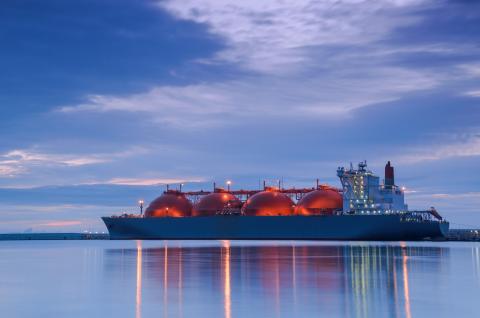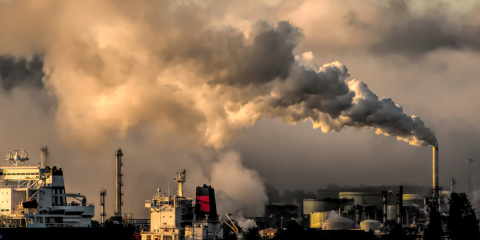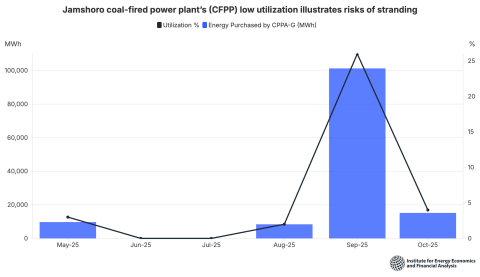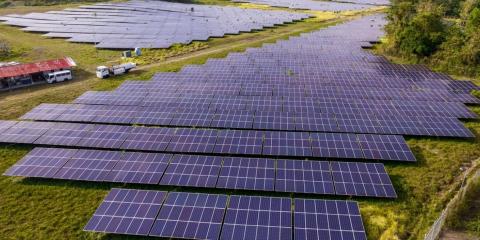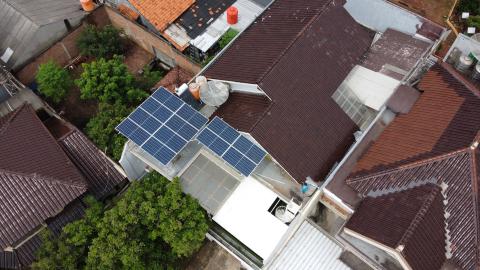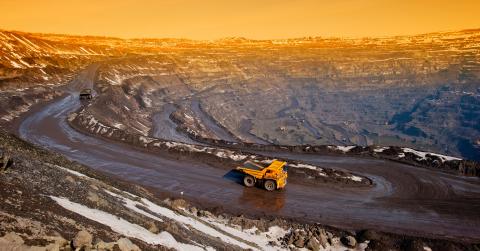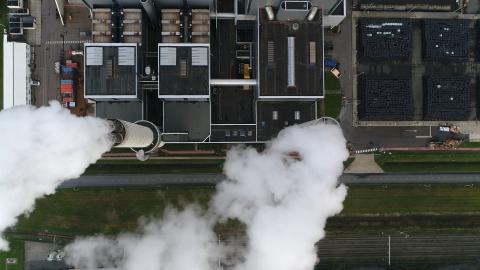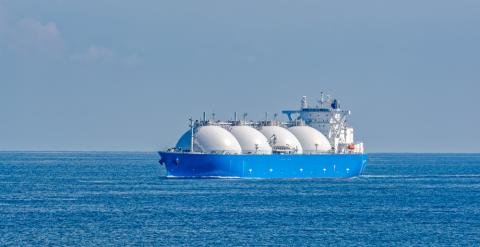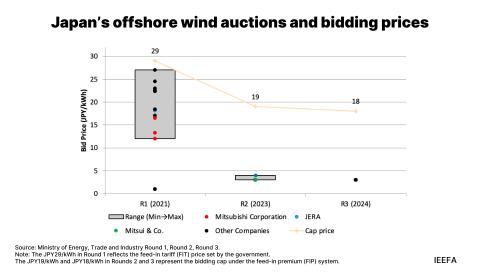IEEFA Update: Financial retreat from oil and gas tracked
To date, 50 significant global financial institutions have announced exits from their investments in oil and gas, with 23 major players beating a path to the exit this year alone.
The momentum is really building with every week of 2020
IEEFA has been tracking this retreat and early trends show a similar pattern to global finance’s ongoing retreat from coal.
Last week three of Asia’s five largest power companies announced plans to sell off stakes in coal-fired power stations completely.
Australian ABC journalist Fran Kelly interviewed IEEFA’s director of energy finance studies, Tim Buckley.
Tim Buckley: We are seeing major global financial institutions announcing commitments aligning with Paris. Last week we saw HSBC join Barclays, Morgan Stanley, and JPMorgan all setting net zero lending targets by 2050. So that is highlighting how the momentum is really building with every week of 2020 to align with Paris and to move to zero emissions lending-focused targets.
Fran Kelly: In the short term, when you talk about pulling out of oil and gas, is that overstating it? Investors – big players – are now excluding investments in high-risk oil sands development and drilling in the Arctic. But these are the dirtiest kind of energy production; this is all the low hanging fruit, isn’t it? It’s not really a pulling out of oil and gas, is it?
They’re pulling out of the highest risk, lowest likely rates of return projects
TB: In the short term, your statement’s 100% correct. What we’re identifying is that they’re pulling out of the highest risk, lowest likely rates of return projects around the world in oil and gas, and they’re building on the momentum we’ve have seen over the last 2 or 3 years which has seen them formerly exit thermal coal and coal-fired power plants at an increasing momentum.
But I would go back to the comment that I made about HSBC, Barclays, Morgan Stanley, and JPMorgan. What they’re doing is announcing exits of oil sands and/or arctic drilling in the near term, but they’re also committing to net zero by 2050. They’re committing to a long-term decarbonisation strategy that effectively, unless you have carbon capture and storage effective, commercialised and working, you have to actually move 100% away from oil and gas, like coal, and so that is the longer-term target that aligns with Paris. What we’ve seen in 2020 is these major global institutions really starting to acknowledge the critical importance of Paris and the need to align with it.
APPEA is the gas industry lobby group
FK: It doesn’t necessarily mean that demand for oil and gas in the interim, in that period in the decades leading to 2050, is abating does it? I mean APPEA (Australian Petroleum Production & Exploration Association) points out that the recent international energy forecast is that more than half of all global energy consumption in 2040 will be oil and gas, and it says the International Energy Agency (IEA) predicts demand for gas and for Australian LNG to grow very strongly by 30% or more by 2040. So how do these two predictions marry up?
Exxon Mobil shares are down 50% this year,
TB: APPEA is the gas industry lobby group and you just quoted the single figure as though that is the IEA’s forecast. The IEA makes it absolutely, abundantly clear they don’t make point estimates; they provide scenarios. So, what APPEA is quoting is based on an assumption that the Paris Agreement will fail. In the assumption that we’re going to live in a 3 degree Celsius world, on average then, gas demand will go up. What IEA also models is that if we align with Paris, if we’re going to actually live in a liveable planet of 1½ to 2 degrees, gas consumption globally is going to decline in that same period. So it really depends on whether or not you assume we can have a liveable planet. APPEA works on the assumption we are going to have an unliveable planet. I’m working on the assumption that the financial markets are actually moving to align with Paris and that’s what we’ve seeing.
Exxon Mobil shares are down 50% this year, and Origin Energy shares are down 68% – just this year alone. That says to me, the financial markets are pricing in risk that they’ve never assessed before, and they’re saying that oil and gas, like coal, has to see a sustained reduction in demand of serious magnitude. That’s why the biggest oil and gas company in the world’s share prices halved this year.
FK: But is it seen as a sustained reduction in the demand for gas? Because as you would be well aware, our Prime Minister Scott Morrison is banking on a gas-fired recovery from the COVID recession. Australia is the world’s largest exporter of LNG and supporters of this area suggest that there is no decrease in demand for Australian LNG. I mean, can you measure that?
Everything is changing in the oil and gas space in 2020
TB: I don’t need to. The IEA has just announced that this year we’ve had the biggest decline in gas, oil and coal demand in world history.
FK: Yes, but that’s because of COVID isn’t it? They’re saying that will rebound. COVID has meant decreased manufacturing, decreased transport, a decreased use generally of fossil fuels.
TB: A gas lobbyist would claim that. I would say there are massive structural changes compounding massive cyclical changes compounding COVID changes, and that everything is changing in the oil and gas space in 2020. So, when the biggest oil and gas bankers in the world are committing to zero lending to those same firms within just 30 years, that’s pretty profound.
Momentum is building much faster than anyone thought possible.
So APPEA can deny the facts, they can deny that gas demands declined at the biggest rate ever in world history this year. They can point to a forecast that is predicated on the Paris Agreement failing, and our Prime Minister can provide subsidies to a gas industry that global finance is increasingly unwilling to finance. That’s why Scott Morrison’s had to announce a gas-lead recovery because the global capital markets are saying increasingly they won’t.
Last week we saw Mitsui & Co plus JERA of Japan and KEPCO of South Korea – so three of the biggest energy companies in Asia – all committing to exiting coal. They were previously the biggest investors in coal-fired power in Asia.
FK: But coal’s not gas. It’s a separate scenario to gas, isn’t it?
TB: And that is what we’re saying. What we’ve seen in coal over the last 3 years is now starting to hit the oil and gas companies. Momentum is building much faster than anyone thought possible.
Tim Buckley is the Australasia director of energy finance studies at the Institute for Energy Economics and Financial Analysis.
Listen to the interview: Asian retreat from fossil fuels tracked
Related articles:
From zero to fifty, global financial corporations get cracking on major oil/gas lending exits
What Australia can learn from Texas’ embrace of clean energy
Canadian assessment of LNG ‘rising tide’ would drown balance sheets in red ink


